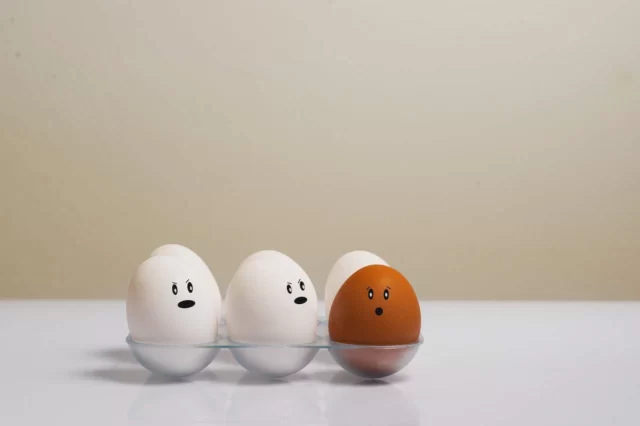What is the Difference between Was and vs Were? They are past tense forms of the verb “to be.” They are used to indicate a state or condition in the past. “Was” is used with singular subjects (e.g., “He was,” “She was,” “It was”). “Were” is used with plural subjects (e.g., “They were,” “We were,” “You were”) and also with the pronouns “you” (singular and plural) and “I” when used in hypothetical or contrary-to-fact situations (e.g., “If I were you,” “If it were sunny”).
Understanding the English in pronouns confusing words: Difference between Was and vs Were – Definition, Comparison Chart, Examples, and Key Points.
Both “was” and “were” can be used to describe an action, a state of being, or to form the past continuous tense.
Examples:
- He was happy yesterday.
- They were playing in the park.
- If I were taller, I could reach the top shelf.
- She was studying when the phone rang.
“Was” is used for singular subjects in the past tense, vs “were” is used for plural subjects and hypothetical situations.

Definition of “Was”
“Was” is the past tense form of the verb “to be.” It is used to indicate a state or condition in the past. “Was” is specifically used with singular subjects and singular pronouns such as “he,” “she,” and “it.” For example, “He was happy yesterday” or “She was studying when the phone rang.”
Definition of “Were”
“Were” is the past tense form of the verb “to be.” It is used to indicate a state or condition in the past. “Were” is specifically used with plural subjects and plural pronouns such as “they,” “we,” and “you.” For example, “They were playing in the park” or “We were studying for the exam.”
10 Comparison Chart for the Difference between was and were
Sure! Here is an expanded comparison chart highlighting the difference between “was” and “were” in ten different aspects:
| Aspect | “Was” | “Were” |
|---|---|---|
| Verb form | Past tense form of the verb “to be” | Past tense form of the verb “to be” |
| Subject agreement | Used with singular subjects and pronouns | Used with plural subjects and pronouns |
| Examples | He was happy yesterday. | They were playing in the park. |
| She was studying when the phone rang. | We were studying for the exam. | |
| It was a beautiful day. | You were late for the meeting. | |
| Indicating a state or condition in the past | Used to indicate a state or condition in the past | Also, Used to indicate a state or condition in the past |
| Tense | Used in the past tense | Used in the past tense |
| Singular vs Plural | Applied to singular nouns and pronouns | Applied to plural nouns and pronouns |
| Past events or situations | Used to describe past events or situations | Also, Used to describe past events or situations |
| First and third person | Used with singular first and third-person pronouns | Used with plural first and third-person pronouns |
| (I, he, she, it) | (we, they) |
I hope this expanded comparison chart provides a clear understanding of the difference between “was” vs “were” in various aspects.
Examples of Differences between was and were
Sure! Here are some examples that illustrate the differences between “was” and “were”:
- Singular vs. Plural:
- He was happy yesterday. (singular subject)
- They were playing in the park. (plural subject)
- Hypothetical or Contrary-to-fact Situations:
- If I were taller, I could reach the top shelf.
- If it was sunny, we would go to the beach. (hypothetical situation)
- Subject-Verb Agreement:
- She was studying when the phone rang.
- We were studying for the exam.
- Pronouns:
- It was a beautiful day.
- You were late for the meeting.
These examples showcase how “was” is used with singular subjects and pronouns. While “were” is used with plural subjects and pronouns or in hypothetical situations.
Main key point Differences between was and were
Here are the key differences between “was” and “were”:
- Subject Agreement: “Was” is used with singular subjects and pronouns. While “were” is used with plural subjects and pronouns.
- Verb Form: Both “was” and “were” are past tense forms of the verb “to be.”
- Indicating a State or Condition in the Past: Both “was” and “were” are used to indicate a state or condition in the past.
- Tense: Both “was” and “were” are used in the past tense.
- Singular vs Plural: “Was” is applied to singular nouns and pronouns. While “were” is applied to plural nouns and pronouns.
- Past Events or Situations: Both “was” and “were” can be used to describe past events or situations.
- First and Third Person: “Was” is used with singular first and third-person pronouns (I, he, she, it). While “were” is used with plural first and third-person pronouns (we, they).
These key points highlight the main differences between “was” vs “were” in terms of the subject agreement, verb form, tense, and usage with singular or plural subjects.
Bottom line
The difference between “was” and “were” lies in their usage in the past tense. “Was” is used with singular subjects and pronouns. While “were” is used with plural subjects and pronouns or in hypothetical situations. Both forms indicate a state or condition in the past and can be used to describe past events or situations. They are also used in the past tense and have different subject agreements. “Was” is applied to singular nouns and pronouns. While “were” is applied to plural nouns and pronouns. Overall, the main differences between “was” vs “were” can be summarized in terms of the subject agreement, verb form, tense, and usage with singular or plural subjects.


Leave a Reply